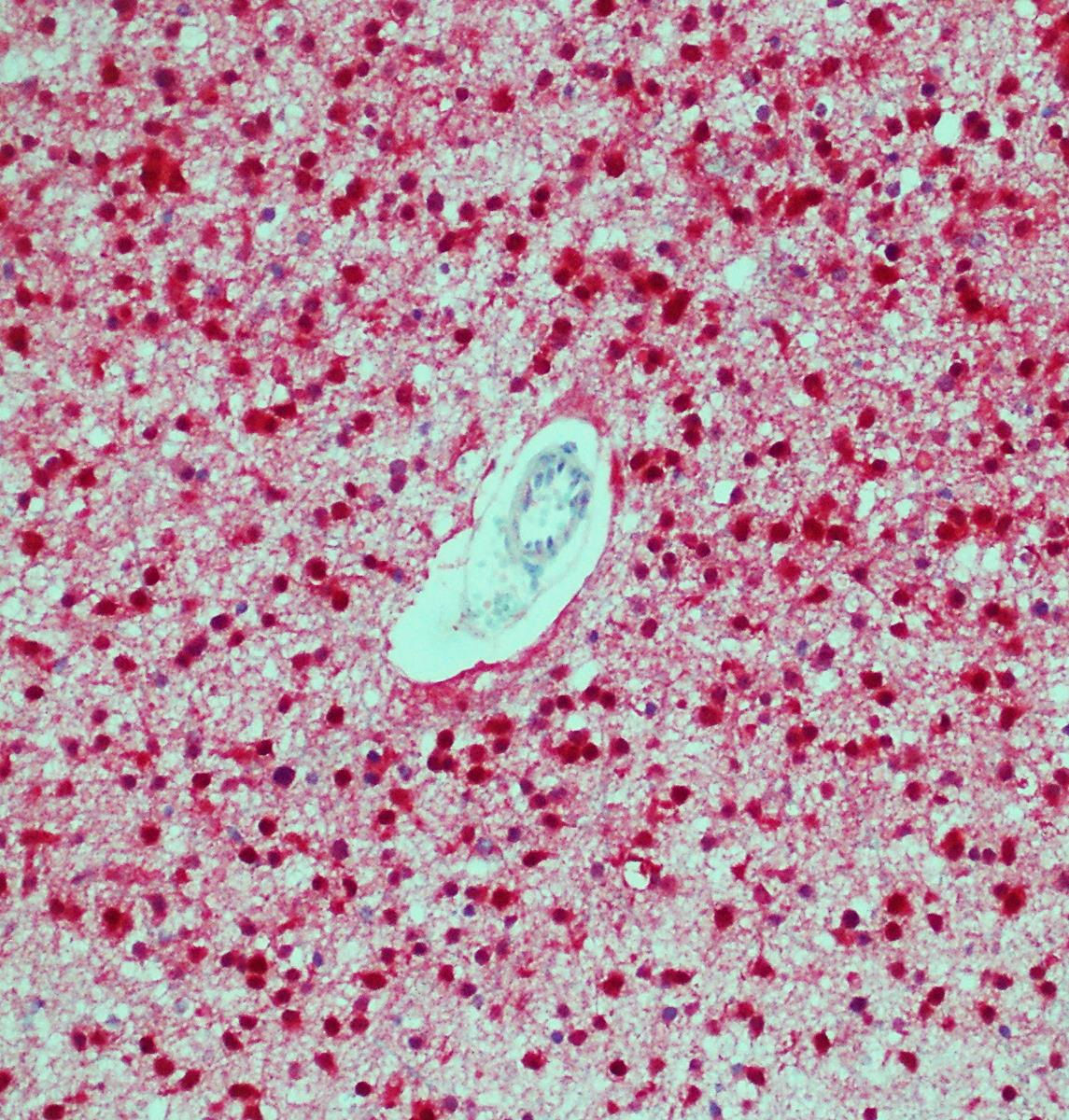Anti-IDH1 R132H (clone QM002)
Monoclonal Antibody Specific for IDH1 R132H Point Mutation – A Key Diagnostic Marker in Brain Tumors
The monoclonal antibody specific for the IDH1 R132H point mutation is characterized by:
✔ Strong immunohistochemical staining (IHC)
✔ Consistent performance and reliability
✔ Absence of non-specific background stainingThese features make it highly useful for detecting mutant IDH1 in FFPE tissue sections, facilitating the diagnosis and classification of brain tumors according to the WHO classification.
IDH1 – Wild-Type and Mutant Form
Isocitrate dehydrogenase 1 (IDH1) is an enzyme that catalyzes the third step of the citric acid cycle, converting isocitrate into alpha-ketoglutarate and releasing CO₂.
✔ Localization: Cytoplasm and peroxisomes
✔ Presence: Widely expressed across species, including organisms that lack a complete Krebs cycleMutations in IDH1 most commonly involve a missense substitution at codon 132, leading to:
✔ Loss of normal enzymatic function
✔ Abnormal production of 2-hydroxyglutarate (2HG)
✔ Inhibition of alpha-ketoglutarate-dependent enzymes (including histone and DNA demethylases)
✔ Widespread histone and DNA methylation changes, which may contribute to tumorigenesisIDH1 R132H – A Key Mutation in Neuropathology
The IDH1 R132H point mutation is found in over 70% of gliomas, particularly in:
✔ WHO Grade II and III gliomas
✔ Secondary glioblastoma (WHO Grade IV)The high prevalence of IDH1 mutations in oligodendroglial tumors makes it a critical marker in distinguishing oligodendrogliomas from other clear-cell neoplasms.
IDH1 status can be assessed via IHC to detect the mutant protein; however, if negative or inconclusive, further DNA-based analysis is required.
Clinical Significance of IDH1 Mutation
✔ IDH1 mutation has both diagnostic and prognostic value in primary brain tumors.
✔ Tumors with IDH1 mutations are associated with better overall prognosis.IDH1 R132H Mutation in Other Cancers
Research has identified IDH1 mutations in various malignancies, including:
✔ Acute myeloid leukemia (AML)
✔ Acute lymphoblastic leukemia (ALL)
✔ Cholangiocarcinoma
✔ Chondrosarcomas
✔ Prostate cancer
✔ Papillary breast carcinoma
✔ Melanoma
✔ Angioimmunoblastic T-cell lymphoma
✔ Primary myelofibrosisThe presence of IDH1 mutations suggests a broader oncogenic role for this enzyme, making it an important diagnostic and therapeutic target across different cancer types.

